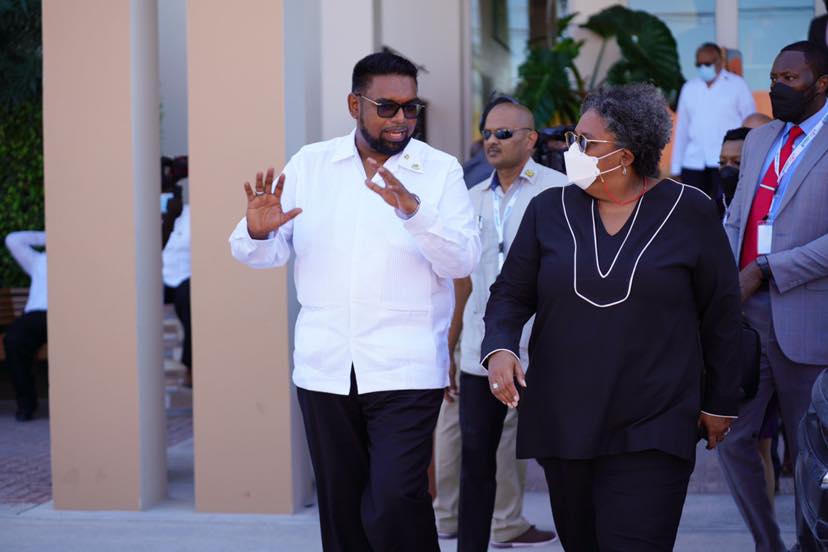
Higher food prices possible with Ukraine- Russia conflict – PM Mottley
The COVID-19 pandemic has resulted in a surge in the price of food and other commodities but Barbadian Prime Minister Mia Mottley has cautioned Caribbean countries that the ongoing Ukraine- Russian conflict could worsen the rising cost of goods.
CARICOM and individual Member States have condemned Russia’s invasion of Ukraine and called for a return to diplomacy, instead of conflict.
This ongoing conflict was, however, the subject of much discussion at the recently concluded Thirty-Third Inter-Sessional Meeting of Heads of Government of the Caribbean Community (CARICOM).
And at the meeting’s closing press conference, Mottley noted that the Heads of Government also discussed the economic impact of the conflict.
“We also recognize that any efforts that we have to increase food production must be urgent because the increase in prices is likely for food as a result of the dominant role that both Russia and Ukraine play in the production of both corn and soya,” Mottley said during the press conference held last Wednesday night.
The price of fuel and other commodities are expected to increase; already, the price of oil has increased to more than US $100 per barrel.
Russia and Ukraine are not among the top trade partners of Guyana but Mottley explained that the conflict may result in rising freight costs and supply chain challenges worldwide. As such, price increases are expected to be felt in Guyana.

Already, COVID-19 restrictions had led to increasing freight costs and supply chain challenges that contributed to a noticeable increase in commodities.
In Budget 2022, Guyana’s government has introduced several measures to curb these woes, including a $5 billion sum to ease the rising cost of living.
Generally, however, Prime Minister Mottley said that the ongoing regional thrust to increase food production is even more crucial to protect Caribbean countries from exogenous shocks like the COVID-19 pandemic and the Ukraine- Russia conflict.
For context, exogenous shocks are unexpected and unpredictable events that occur outside a country that still have a dramatic effect on the country’s economy.
And Prime Minister Mottley said, “There is alot for us to do but it is not impossible for us to do the things which can boost economic activity.”
She also noted that the new oil producers in the Region- Guyana and Suriname- have the potential to become “game changers” over the next few years.
CLIMATE CHANGE COSTS
What remains concerning, however, is that the Caribbean’s ability to withstand the harsh impact of these shocks is constrained by the constant battering by natural disasters such as floods. These natural disasters, she said, are part of the world’s climate crisis.
As she has lamented at regional and international fora, the harsh effects of climate change have a greater effect on Caribbean countries and other small islands, or low-lying countries.
And with these countries spending large sums of money to recover from these disasters every year, there is less available money for them to spend on developing their productive sectors and their economies, generally.
“I think we are at the stage where there is a common recognition where we really do need to work together,” Mottley emphasised, calling on International Financial Institutions such as the World Bank, and developed economies to recognise the support needed.





